According to the report of the Vietnam Real Estate Brokers Association, in terms of transaction situation, in the first 9 months of 2025, the market absorption rate reached a very positive level - nearly 70%, equivalent to about 60,000 transactions, double that of the same period last year.
But the reality is that although real demand still accounts for a large proportion, market developments are being led by more investment cash flow because real estate prices are at a very high level.
Explaining this reality, according to Mr. Nguyen Van Dinh - Vice President of Vietnam Real Estate Association - in the context of increasing inflationary pressure and infrastructure development, many investors consider real estate as a safe haven and an effective profit-making tool.
Investment cash flow is currently mainly focused on products serving real housing needs - products with good rental potential and clear price increase potential. These are the main factors that motivate investors' decision to "put down money".
" The majority of transactions in the market today come from the second group of real estate buyers - that is, those buying for investment, not for living. This shows that buying and selling activities are mainly driven by investment cash flow, while real housing demand is still facing difficulties because current prices are far beyond the affordability of the majority of people ," said Mr. Dinh.
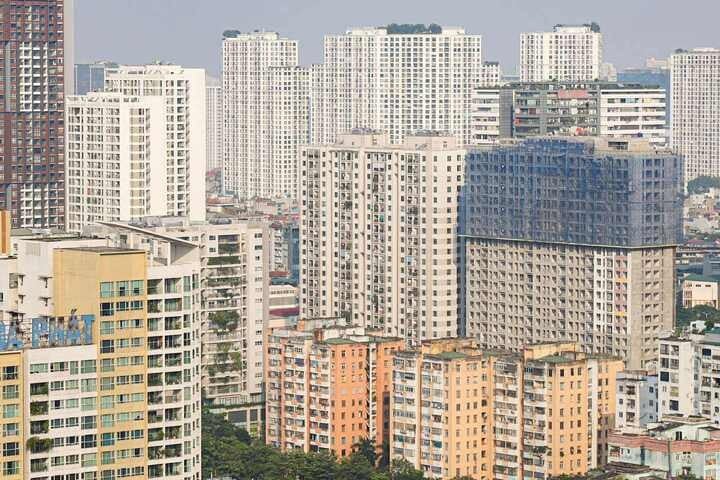
Mr. Vo Huynh Tuan Kiet, Director of Housing Department of CBRE Vietnam, also said that the new supply in the inner city of Ho Chi Minh City (formerly Ho Chi Minh City) is currently operating in the direction of serving investment needs, not real residential needs. Most investors determine that buyers will not live in the property but only hold or rent it out, so the product is positioned higher to maximize profits.
" With the current price level, cash flow in the market is almost only circulating among investors, while home buyers are very difficult to access ," Mr. Kiet commented.
Data from DKRA Group also shows a similar trend. In more than 2,000 transactions recorded in the first 9 months of the year, homebuyers only accounted for about 30%, the remaining 70% were investors. The investor group has stronger financial potential, willing to pay high prices if they see a profit opportunity, while real homebuyers - with a budget of 1-2 billion VND, can hardly access apartments priced from 4-5 billion VND or more.
Ms. Pham Thi Mien, Deputy Director of the Vietnam Real Estate Market Research and Evaluation Institute (VARS IRE), also said that most of the transactions in the primary market come from the demand of the group of people who own many real estates. In addition, many projects have good absorption rates thanks to "riding the wave of large projects" and benefiting from local mergers.
According to Ms. Mien, real estate prices will continue to increase in the short term because investors’ profit expectations remain high. A large number of investors are still “living well” and are not under pressure from financial leverage. Therefore, they have no reason to adjust selling prices.
“ In the context of interest rates being maintained at low levels, cheap cash flows continuing to be pumped into the market, policies to promote public investment being strongly implemented, and the supply of mid-range and affordable housing still scarce, investors still believe that real estate prices will continue to rise ,” Ms. Mien assessed.
Mr. Le Dinh Chung - expert real estate also commented that recently the supply of apartments has mainly been in the high-end segment. The average apartment price is currently around 80 million VND/m². Many new projects have recently been opened for sale at prices above 100 million VND/m².
With the current housing prices, ordinary workers, even with a salary of 30 million VND/month, have almost no chance of owning a house. Those who can buy at the price of 70-100 million VND/m² are mainly investors, speculators and a group of people with extremely high incomes such as business owners.
Explaining the reason why the trend of speculative real estate purchase in Vietnam is so high, Mr. Nguyen Quoc Anh - Deputy General Director of PropertyGuru Vietnam Company said that it is partly due to investment channel This is "easy to buy and easy to sell", has good liquidity, and higher profits than other channels such as gold, stocks, or banks. Real estate investment yields are among the best in Vietnam over the past 10 years, reaching 197% for apartments and 137% for land.
Another reason is that the real estate tax policy in Vietnam is lower and more open than many countries in the region, lacking sanctions against speculation and abandonment of land assets.
Mr. Nguyen Quoc Anh cited that currently in the world there are 5 basic taxes for real estate: ownership tax, income tax, registration tax, vacancy tax (tax applied to real estate not used for a long time) and development tax (development of infrastructure, utilities, services, in an area where the real estate is located). On average, home ownership tax in many countries is from 0.3-20%, registration tax is 2-6% and income tax is from 14-45%. Some countries are taxing vacant property from 12-20% and development tax from 1-3%.
In Vietnam, home buyers currently only have to pay the first three taxes: income tax (2-5%), property tax (0.03-0.2%) and registration tax (0.5%). " Low taxes make it easy for buyers to invest in real estate 'rotation', buying this property today and selling another tomorrow ," he said.
Warning of "bubble" risk
According to Mr. Nguyen Van Dinh, when there are fewer and fewer home buyers, the market loses its supply-demand balance, prices are pushed up but not linked to real demand, which can easily lead to bubble risks.
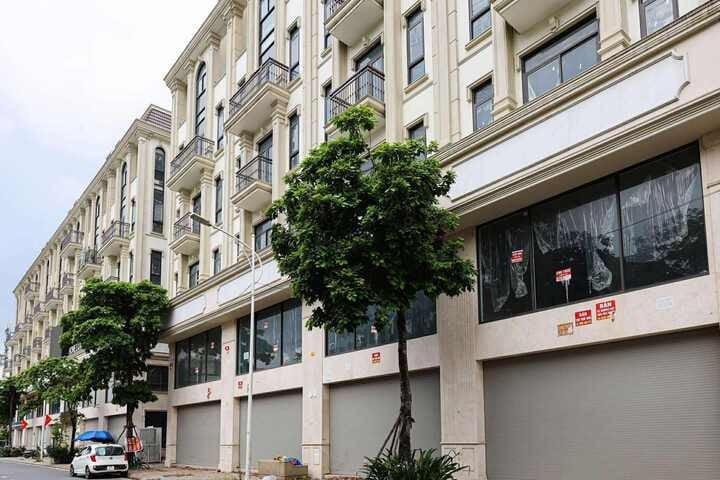
" Without timely policy intervention, housing in large urban areas will become increasingly out of reach for workers ," said Mr. Dinh.
Economist Dinh The Hien also emphasized that it is necessary to bring the market back to its true nature of serving the housing needs of the majority. When short-term investments dominate, apartments are no longer a place to live but become a tool for making profit, pushing prices up continuously and causing social consequences. He recommended that the State soon supplement the supply of mid-range and affordable housing to balance the market structure.
Mr. Nguyen Quang Huy - CEO of the Faculty of Finance and Banking (Nguyen Trai University) - assessed: When capital flows into real estate, the value of this asset increases faster than labor productivity and income growth, creating an increasingly large gap between housing prices and people's ability to pay. This makes the market tend to operate based on expectations of price increases instead of real demand, making liquidity unsustainable and increasing bubble risks.
With trading largely driven by investors, markets become more sensitive to policy changes. A small adjustment in credit, interest rates or sentiment can trigger a chain reaction, leading to a slowdown or local correction. This risk affects not only the speculative group but can also spread to the financial system, businesses and the economy as a whole if not carefully controlled.
" Therefore, the Government's drastic measures to cool down the price increase are the right and strategic move, aiming at long-term stability ," Mr. Huy emphasized.
Source: https://baolangson.vn/thi-truong-bat-dong-san-dien-bien-la-chuyen-gia-khuyen-cao-gi-5063967.html







![[Photo] Opening of the 14th Conference of the 13th Party Central Committee](https://vphoto.vietnam.vn/thumb/1200x675/vietnam/resource/IMAGE/2025/11/05/1762310995216_a5-bnd-5742-5255-jpg.webp)
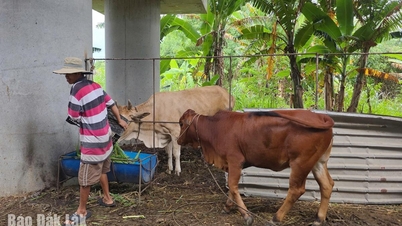













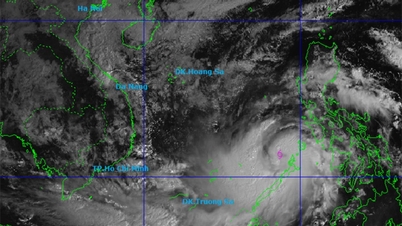


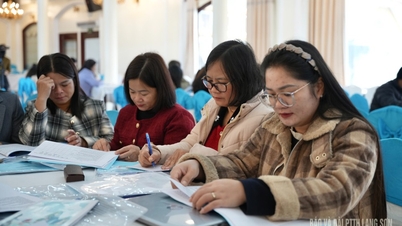

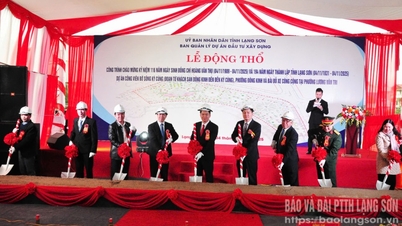

![[Photo] Panorama of the Patriotic Emulation Congress of Nhan Dan Newspaper for the period 2025-2030](https://vphoto.vietnam.vn/thumb/1200x675/vietnam/resource/IMAGE/2025/11/04/1762252775462_ndo_br_dhthiduayeuncbaond-6125-jpg.webp)






















































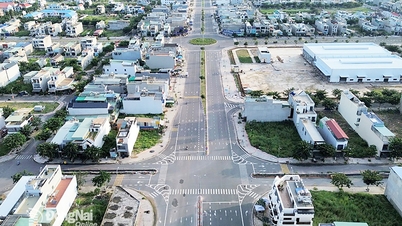

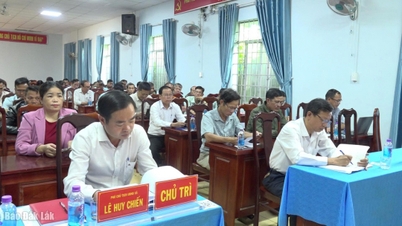


















Comment (0)